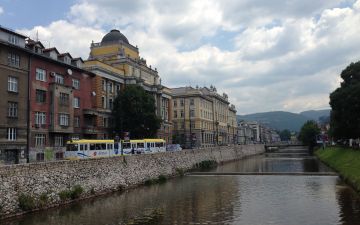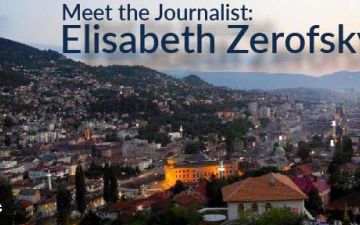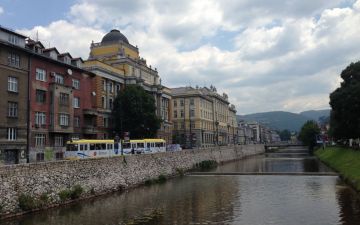Seven years ago, a group of writers, artists, and academics in Sarajevo who were troubled by the ethnic nationalism and corruption that had become pervasive in the post-war Bosnian political system decided to run for office together in local elections. They founded Naša Stranka (Our Party), which has become one of the only progressive political parties in Bosnia that is genuinely trying to help solve the problems that have kept the country paralyzed since the end of the war.
By the time the Dayton Accords were finalized, 20 years ago this month, Sarajevo had come to be seen by the world as symptomatic of lingering ethnic divides in Europe. But the Bosnian war obscured the fact that Sarajevo had long celebrated its identity as a place of diversity, and had been shaped, over centuries, by its many cultural and religious communities—Catholics, Muslims, Orthodox Christians, Jews, and others.
Dayton ended the war in Bosnia, but it established a complicated power-sharing arrangement among the country's so-called constituent ethnic groups—Croats, Serbs and Bosniaks. The system has solidified the ethnic lines rather than repairing them, and its distorted incentives, which reward maintaining the status quo, have stalled any sort of progress. As a result, Bosnia has remained economically inert, with devastating levels of unemployment and ubiquitous graft.
Journalist Elisabeth Zerofsky explores Naša Stranka's story, why the party was formed, and how its political program illuminates the obstacles in the Bosnian system. She also looks at the renewal of the city of Sarajevo. She attended the twentieth-anniversary commemoration of the genocide in Srebrenica this July.




